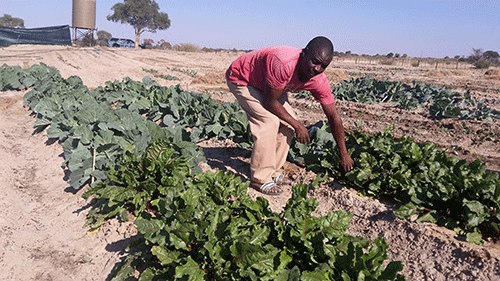Environment and tourism minister Pohamba Shifeta expressed concern that there is evidence that agricultural dryland productivity in the region is negatively declining due to climate change impacts.
The negative impacts of climate change are on the rise, and continue to be felt both nationally and internationally.
Shifeta made the remarks yesterday when he launched the project on resilience-building for climate change adaptation in drought-stricken southwestern African communities.
“The results from studies of the Intergovernmental Panel on Climate Change (IPCC) are loud and clear that climate change will be catastrophic if more action is not taken to curb emissions,” he stressed.
The regional project is financed by the Adaptation Fund, implemented by the Sahara and Sahel Observatory (OSS), and executed by Ajuda de Desenvolvimento de Povo para Povo (ADPP) in Angola and Development Aid from People to People (DAPP) in Namibia.
The project’s objective is to enhance the adaptive capacities and resilience of vulnerable communities to climate change impacts and variability, especially drought, in the transboundary region between Angola and Namibia, in the midstream of the Kavango River. The total duration of the project is five years, with a total budget of US$11.9 million (approximately N$178.5 million).
Whilst Namibia enjoys climate change funding on many platforms, this is the first climate-related project financed in Angola.
The five-year action for climate change adaptation, which is aligned with national and regional strategies, takes place at the community level.
Despite the insignificant contribution to global greenhouse gas (GHG) emissions by African countries, the minister feels the continent is hardest-hit by these calamities due to prevailing low adaptive capacities.
According to him, the impacts of climate change are already affecting the economic development of the region, particularly in the agricultural sector in both countries.
“The rural households and small-scale farmers are the ones severely affected because of their heavy dependence on rain-fed subsistence farming, while fisheries and tourism are not spared either,” Shifeta noted.
These threats, he added, can directly reduce Namibia’s gross domestic product, which will ultimately lead to severe economic losses that may undermine efforts to achieve regional and national developmental goals.
–anakale@nepc.com.na


